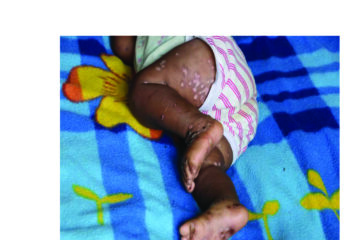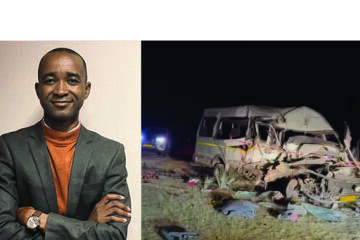Mallex Shipanga
The Legal Assistance Centre (LAC), in partnership with the European Union (EU), announced the completion of the first paralegal training programme to empower San communities nationwide.
This training which took place from 19 to 23 November, is part of the LAC’s “Empowering the SAN: Legal Capacity Building for Access to Human Rights” project.
The project trains paralegals in San communities, enabling them to advise, guide, and support fellow community members on legal matters.
The five-day-long, field-based training programme sought to empower San communities in Gobabis and Vergenoeg in the Omaheke Region.
Dozens of aspiring paralegals attended the training to deepen their knowledge and skills in legal matters affecting San communities.
The programme explored themes of access to justice, community safety, and the advocacy of legal rights in areas with limited legal resources.
In line with the training programme’s focus on community policing, the Vergenoeg San community shared lessons learnt from their crime prevention efforts.
“In Vergenoeg, we believe that community safety is a shared responsibility, where both traditional practices and modern policing methods should work hand in hand. By coming together as a community, we can face challenges, prevent crime, and ensure peace for all,” said a member of the community police, Magdalena Jacob.
In a joint statement, the EU and the LAC commended the Vergenoeg community’s approach:
”The Vergenoeg community’s proactive efforts to address safety issues and foster peaceful coexistence is an exemplary model for other San communities in Namibia.”
In Gobabis, participants of the training programme had the opportunity to converse with senior headman Frans Kamtieb, representing Chief Dabe of the Naro San.
Kamtieb shared insights on how the San communities traditionally addressed safety and crime issues.
He explained the importance of community-based approaches, highlighting the role of traditional leadership in maintaining order and resolving conflicts.
Paralegal trainees also visited Vergenoeg to learn first-hand from community members and leaders alike.
The training programme aimed to equip these paralegals with exposure and information in conflict resolution, community mediation, and legal support with a focus placed on gender-based violence, land disputes, and youth crime prevention.
Programme manager at the EU Delegation to Namibia, Silke Höfs, addressed the paralegal trainees.
Höfs explained how paralegals can play a role in bridging the gap between justice systems and marginalised communities, like the San.
“Trained paralegals serve as critical connectors between their communities and the formal justice system,” she said.
“They are advocates, educators, and facilitators, ensuring that justice is not just a principle but something tangible and meaningful for the people they serve,” she added.
The governor of the Omaheke Region, Pijoo Nganate, explained the importance of paralegals in advocating for the rights of their own communities.
Cultural and traditional performances, such as dances, were incorporated into the training programme, allowing the participants to celebrate their cultural identity.




